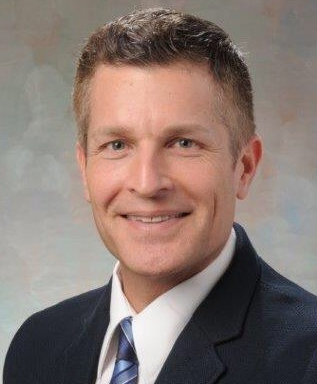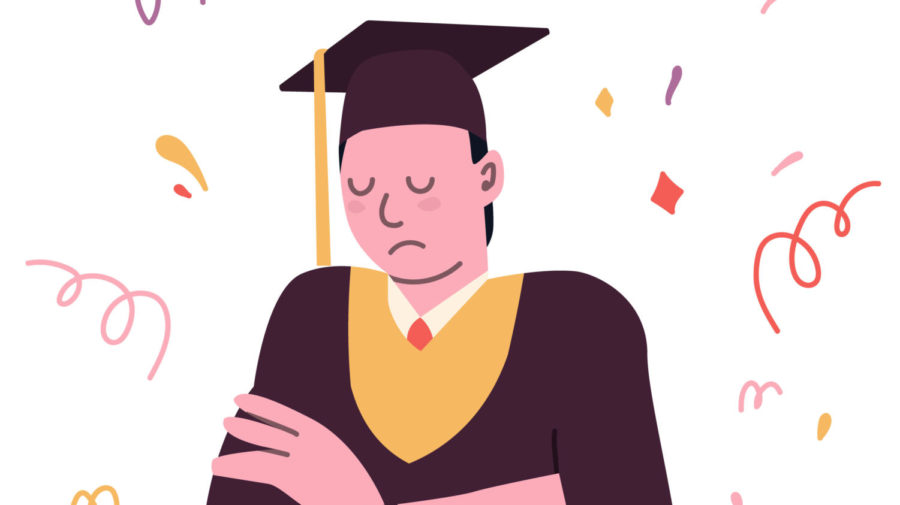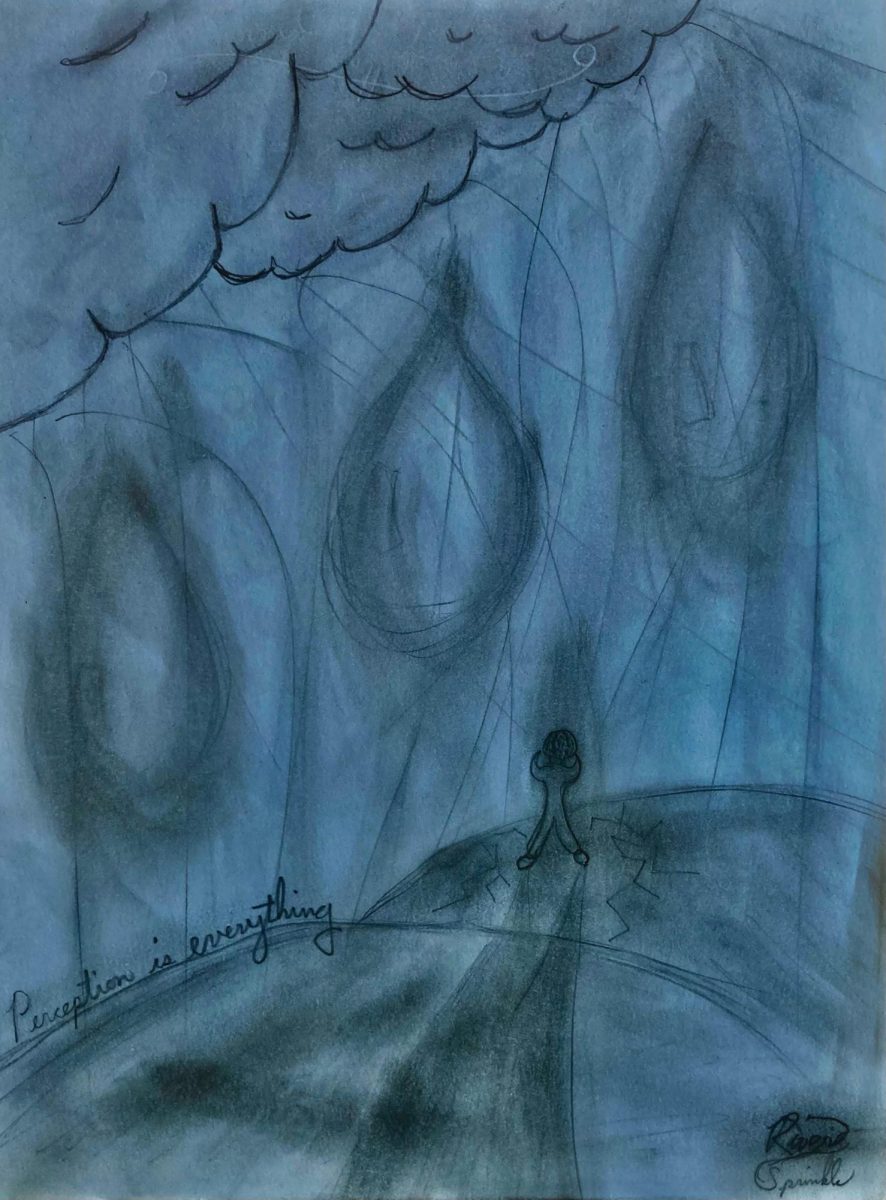Opinion: Dialogue with Associate Dean Robert C. Schwartz on graduation-related anxiety and depression
Irina Popova - stock.adobe.com
Depression and anxiety often accompany major life changes like graduation.
May 6, 2023
My experiences with mental health can be found in part one of this two-part series: “I’m Still Getting My Sh*t Together (and that’s okay).” There, I dive deeper into my own journey in life, overcoming struggles, and my current distress about graduating.
While brainstorming ideas for that piece, I was given the opportunity to interview Dr. Robert C. Schwartz, Associate Dean of the College of Health and Human Sciences.
As a professor in the School of Counseling, Schwartz offered professional insight on my distress. I found an answer to the question “am I the only one?”
No, I’m not alone.
My conversation with Schwartz made me realize that I need to open up more. Without being vulnerable in the first place, I wouldn’t have been able to participate in this enriching conversation.
Just hearing that my feelings are valid and that I’m not alone did wonders for me. After our meeting I knew that I needed to split my project into two stories—one part about my own experience, and a part about Schwartz’s insight on mental health.
We both want other students to find the same relief that I felt throughout our interview, and to be offered the same resources.
Our conversation went as follows.
After telling Dr, Schwartz about being depressed during a joyous time (graduation):
Yeah, I can understand. I actually felt that way too. I think most people do, I’m sure that you’re not alone by far. There’s a social desirability effect – like when you go to a party, and someone asks how you’re doing. You’re supposed to say, “oh I’m great,” you don’t want to say “oh well let me tell you, my partner’s sick, and I just got in an accident” – you don’t want to bring it down. It’s sort of like this.
Does feeling depressed during a celebratory time have a term? (I asked because it’s called post-grad depression on Google).
Anxiety and depression are words that we use to describe certain human experiences. To be completely honest, neither anxiety or depression in and of itself are bad things, or wrong to experience.
They actually could be helpful if a person listens to their mind and body, and they use that as information, because it’s telling them that something isn’t exactly right. So in that sense, a little bit of anxiety or depression can actually inform you about your state of mind, your environment, and lots of different things.
When it gets to a moderate level, it can be very uncomfortable and start affecting your life, and even your self-image and relationships. When it gets to the extreme or severe level, that’s when it might become a mental disorder because it could actually be disabling.

When mental disorders become so distressing that they prevent you from living like you normally would, those cases could have a specific diagnosis. There are different levels, and these are just names (anxiety and depression) that we have created in our society to describe human suffering.
Everyone experiences them (anxiety and depression) differently. The quicker people can understand their own experience, the quicker they can use that information about themselves, and the more they can prevent it from getting to that extreme level. That’s the important thing.
After telling Dr. Schwartz I’ve had issues with anxiety and depression for a while, and have official diagnoses, I asked him if this means that people with underlying issues like me are the ones most likely to experience distress even during celebrations.
That’s true. Some people, either through being more anxious in general, or more prone to depression, like a melancholy kind of personality, would be more vulnerable when stressors happen.
The key is that this kind of a major life transition [graduating] is just like others. Getting married, the passing of a significant other, the loss of a job, and countless types of stressors, kind of reset your life and mindset. They cause you to have to rethink everything. Those types of stressors make people that are already vulnerable more anxious or depressed because it riles up what was beneath the surface.
I told Dr. Schwartz that I feel like I’m losing a major part of my identity.
Before we met, I was thinking about some of the things that might relate to someone being more anxious or more depressed than usual when they’re going to graduate.
Part of that can be really practical changes that need taken care of, like someone needing a job, or financial issues. But I think what you’re talking about, and what is behind a lot of people’s stress about graduating, is that it’s more existential; it’s more psychological.”
Your identity is changing. You’re also shifting relationships, shifting from people you’ve built relationships with at the university and moving into the unknown. That causes an existential void in a sense. You think, “how am I going to fill that void?” That’s what causes anxiety.
What are some possible signs of anxiety/depression that students can watch for in themselves and peers?
An important thing to mention is that anxiety and depression show themselves differently for each person. These are not like concrete things that you can touch and hold with your hands; they’re not physical things, they’re really just words to describe human experiences.
The more common experience that people share, but again may not apply to everybody, is first and foremost the sleeping changes. With both anxiety and depression, you would not be getting a full night’s restful sleep very often.
It would not just be one night of that; it would be days or even weeks. You would start noticing that you’re waking up a lot during the night, and you’re not rested in the morning.
When you’re trying to go to sleep your mind sort of relaxes, and your body’s defense mechanisms that you use every day relax as well. Our unconscious worries start bubbling up to the surface because our defense mechanisms are down in our body. And so, you might notice as you’re going to sleep that you’re thinking about the future or the past, regrets, or guilt, or even fears about what might happen.
You start replaying those in your mind over and over, making it harder to go to sleep. That’s very common when people are depressed or anxious. Then, they wake up throughout the night because the unconscious worries bubble up again, and they’re not rested in the morning [continuing the cycle]. That’s probably the number one scenario that happens.
The second thing that’s very common with anxiety and depression that people recognize is that during the day you feel different. You don’t feel at ease, or as comfortable. You feel like you’re spending a lot of energy holding back what’s going on inside of yourself, and so you might find that you’re not fully present.
You’re just going through the motions because you’re trying to deal with the anxiety and depression that’s behind the surface in your mind. You might start feeling like, when you’re talking to other people, or going out, that it feels like a hollow experience because you’re not fully there enjoying it.
That leads to a third one: the combination of not sleeping as well and not being fully present during the day leads people to not enjoying things they would’ve in the past. That might be spending time with friends, family, or going to a movie. They might even be doing these things still but aren’t feeling as happy as they once did. That’s a common symptom, especially as this gets more severe.
I then told Dr. Schwartz I’ve experienced most of this, and still wake up at 3 a.m. sometimes to have a random panic attack.
It’s not only pretty usual when people are suffering with anxiety or depression, but it’s also understandable. It makes sense because you’re literally trying to process through all this stuff going on in your mind and when your defenses are lowered, it’s coming out from your subconscious.”
When this happens, sometimes there are too many things to process in your sleep, and your body wakes you up.
What mental health services do we have at The University of Akron that students may not be aware of?
We have primarily three. The main one is the Counseling and Testing Center- which is available to active students in Simmons Hall. They offer both in-person and online telehealth appointments, and that’s always 100% free to students.
(Counseling & Testing Center Home : The University of Akron, Ohio (uakron.edu))
The second one is the Clinic for Individual and Family Counseling, and that’s in the School of Counseling building. Their services are a bit broader because they’re available to students and even their partners or family members; it’s open to the community.
(Clinic for Individual and Family Counseling: Home page : The University of Akron, Ohio (uakron.edu)
Do you have any advice or encouragement for students going through a big transition like graduation?
Yes. My advice is to realize that this is a normal and natural process that people go through. Even though it could be uncomfortable, scary, or lead to anxiety or depression, there are many countless people that are experiencing the same thing.
Normalizing an experience can help somebody realize that they’re not “going crazy” or “ill,” necessarily. Acknowledging these feelings is important, because this is uncomfortable stuff; most people don’t usually enjoy being depressed or anxious, so they try to stuff it down.

If you don’t acknowledge it there’s a greater risk that it’s going to increase- acknowledging it could actually help a person understand their experience and where they are in life.
And last, think about ways to increase mindfulness. This is a very important strategy toward understanding yourself, accepting what you experience, and then learning how to cope better.
I also want to share one book; it’s called “Just One Thing” by Rick Hanson. This tells not only the science behind mindfulness and anxiety, but also practical tips that people can do. This is just one example of many (resources) out there that could help people turn the corner a little bit.”
As I wrap up this story the day after interviewing Dr. Schwartz, I find myself feeling both bitter and sweet. My reflection has allowed me to remember many of the battles I’ve won, that I sometimes still try to forget about. I’ve realized that I’m not going to wake up one day in a perfect world—but that is fine.
I accepted that I may not have all the answers, and even though a situation seems scary, I will get through it. I also accepted that I must be the one making progressive changes in my life. We each have the power to dig deep into our souls and better our lives through that understanding.
But at the end of the day, healing is not that easy. Hard times still come by— that’s just life. I believe now more than ever, however, that it is okay to admit when you’re not okay. That is the way forward.










